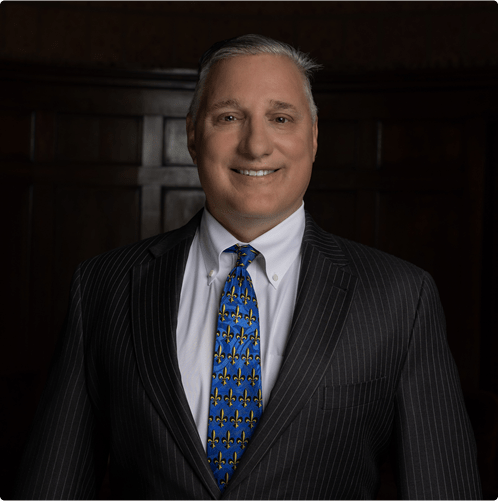
Partner at Charbonnet Law Firm LLC Practice Areas: Life Insurance Disputes

Chemical restraints are drugs that are used to restrict the freedom or movement of an individual – most often elderly nursing home residents. These drugs are usually sedative and serve other primary purposes such as relieving symptoms of schizophrenia. Across the country, more and more people have become discontent with these controversial care practices that ultimately cause unnecessary excess harm and confusion.
California was just one of the many places that have experienced a number of chemical restraint scandals. The Kern Valley Nursing Home in California’s central mountain range had a fallout with authorities when nursing director Gwen Hughes was caught over-prescribing unnecessary medications to patients. The incident, unfortunately, resulted in the death of three separate residents over a short period of time.
Morbidly, these restraints had little to do with any threat that the residents posed to staff members or other residents but rather were administered simply because they had “complained to or annoyed” the former nursing director. These deaths do not go without saying that other residents had been severely drugged and sedated, possibly having sustained damage to their organs as well.
Among the afflicted was Fannie Mae Brinkley, a then-97-year-old lady who was described by her daughter, Phyllis Peters, as feisty and energetic. Her mother suddenly lost energy in her presence while on a visit, prompting a period of panic for Peters.
Unbeknownst to her, Brinkley was given a powerful anti-seizure drug that ended up killing her. The situation initiated the intervention of California Attorney General Jerry Brown, who described the incident in detail to the public. He recanted the story as one of helplessness where residents were held down, force-fed strong drugs, and made dangerously thin as the side effects of the medications kicked in.
While the abusive use of antipsychotic medications as a form of restraint is relatively unknown to much of the public, the issue is far from uncommon. The Food and Drug Administration (FDA) is on record stating that the unnecessary use of these types of drugs kills around 15,000 nursing home patients annually.
The topic of chemical restraints has become so common and concerning that the Human Rights Watch (HRW) has begun to take drastic policy positions on the matter, using its platform to advocate for victims and their families. The international organization is known to describe the misuse of antipsychotics on nursing home residents as a deprivation of liberty, providing evidence that more than 179,000 elderly residents are given these medications without an appropriate diagnosis. Using these drugs on individuals without dementia doubles the risk of death and severely worsens side effects.
Chemical restraints have a slew of impacts on the human body. Sensations, thinking capabilities, and mood are all victims of change following the administration of these types of drugs. Someone may start slurring their words, report having a “heavy tongue,” and even be fully sedated to the point of falling into a deep slumber. While antipsychotics are among the most common types of chemical restraints, benzodiazepines, antidepressants, mood stabilizers, anxiolytics, sedative-hypnotics, and dissociative anesthetics are also frequently utilized.
There are additionally many different conditions that this practice can cause or initiate:
While motives for such actions can vary, it is widely suspected that overly sedating residents acts as a way to make life easier for nurses and healthcare providers. It is greatly suspected that this issue has worsened in severity as a worldwide shortage of healthcare staff has resulted in poor working conditions. Subsequently, nursing home abuse and similar scenarios that endangers the lives of elderly folk increases.
Staff members often justify the use of these drugs as residents may urgently express pain or distress, possibly via “disruptive behavior.” Yet critics and experts do not view these actions as evidence that supports the use of strong antipsychotic medication as a form of chemical restraint.

In fact, federal law prohibits the practice of using chemical restraints. According to the Code of Federal Regulations, it is prohibited for organizations to use antipsychotic drugs as a form of chemical restraint as means of achieving staff convenience or resident discipline. Furthermore, international human rights law could apply to the practice as “cruel, inhumane, or degrading.”
The issue could be defined as deep-rooted as the United States government has been long aware of the practice. Despite a January 1975 publication by the Special Committee on Aging in the United States Senate addressing the misuse of drugs in nursing homes, around 16 percent of nursing home residents in the US are given antipsychotics without an appropriate diagnosis.
The perpetuation of such a problem is further described as, following an HRW review of federally-provided data, hundreds of elderly healthcare facilities routinely administer chemically restraining drugs to more than 30% of the resident population.
Legally, cases involving chemical constraints can go relatively unpunished. Dr. Hoshang Pormir, one of the physicians involved in the aforementioned Kern Valley Nursing Home scandal, pleaded no contest to his charge of conspiracy in allowing the drugging of patients – yet only received three years probation for his actions. Although Dr. Pormir “let it happen,” resulting in the premature death of multiple residents, he faced no jail time. Pormir was allowed to continue practicing medicine upon completing a short mentoring program following his sentencing.
While this California case has captured national attention, many other states have higher rates of chemical restraint in their nursing homes and laxer state laws moderating its practice. It is always recommended for families of nursing home residents to stay up-to-date on state legislation or reach out to the nearest law firm for more information regarding the topic.
The practice of using harmful medications without a proper diagnosis for self-serving reasons is a detrimental one. Chemical restraint has captured the attention of federal and state governments, international human rights organizations, academics, and law firms across the world, creating a system of stakeholders that advocate for the well-being of vulnerable senior citizens. Nevertheless, the use of antipsychotics and other hard drugs to sedate patients is one that routinely persists across the United States.
Contact the skilled and knowledgeable attorneys at Charbonnet Law Firm today, or call our office at (504) 294-5075 and learn how we can help.

With over 50 years of legal experience serving families in the New Orleans area and surrounding Louisiana communities, our firm takes pride in providing clients with personalized legal services tailored to individual needs.